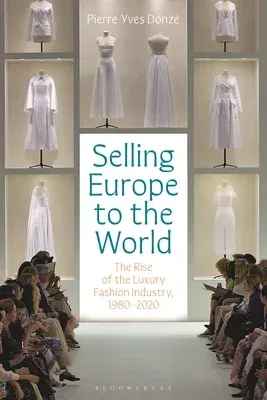Pierre-Yves Donzé
(Author)Selling Europe to the World: The Rise of the Luxury Fashion Industry, 1980-2020Hardcover, 9 March 2023

Temporarily out of stock
Free Delivery
Cash on Delivery
15 Days
Free Returns
Secure Checkout

Print Length
184 pages
Language
English
Publisher
Bloomsbury Visual Arts
Date Published
9 Mar 2023
ISBN-10
1350335770
ISBN-13
9781350335776
Description
Product Details
Author:
Book Format:
Hardcover
Country of Origin:
US
Date Published:
9 March 2023
Dimensions:
23.39 x
15.6 x
2.54 cm
ISBN-10:
1350335770
ISBN-13:
9781350335776
Language:
English
Location:
New York
Pages:
184
Publisher:
Weight:
453.59 gm